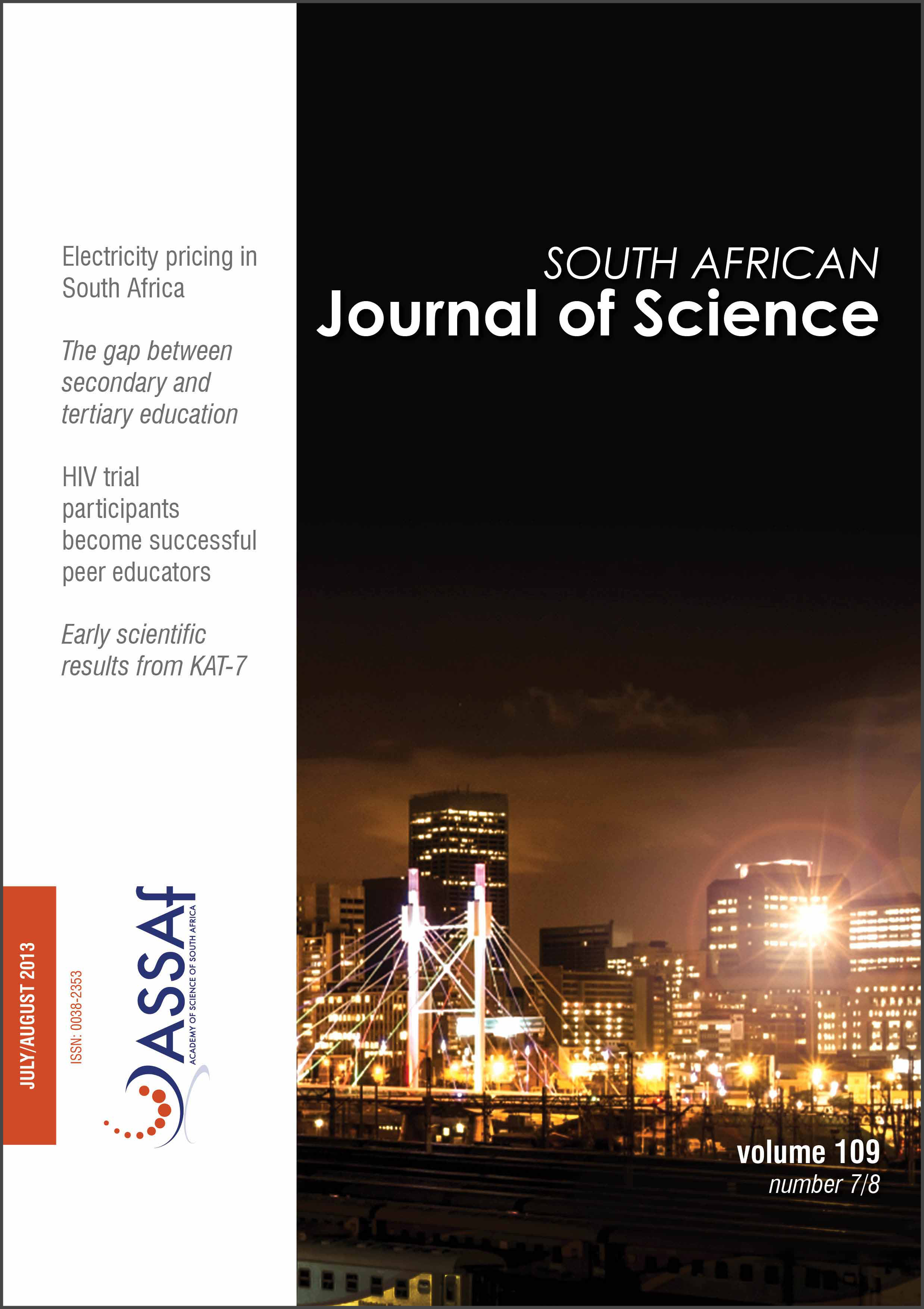Participants as community-based peer educators: Impact on a clinical trial site in KwaZulu-Natal
DOI:
https://doi.org/10.1590/sajs.2013/20130037Keywords:
trial participants, peer educators, community, education, recruitmentAbstract
Participant recruitment, retention and product adherence are necessary to measure the efficacy or effectiveness of an intervention in a clinical trial. As part of a Phase III HIV prevention trial in a rural area in Kwazulu-Natal, South Africa, a peer educator programme was initiated to aid in recruitment and retention of trial participants from the community. Enrolled trial participants who had completed at least 6 months of trial participation and who had honoured all of their scheduled trial visits within that period were approached to be peer educators. Following additional selection criteria, 24 participants were eligible to be trained as peer educators. Training topics included HIV/AIDS, sexually transmitted infections, nutrition, antiretrovirals, clinical trials, and methods of disseminating this information to the community. The role of peer educators was to bring interested women from their community to the trial site for comprehensive education and information about the trial and possibly trial participation. A total of 1879 women were educated by peer educators between July 2004 and December 2006. Of these, 553 women visited the trial site for further education and screening for participation in the trial. Peer educators provided continuous education and support to women enrolled in the trial which also promoted retention, ultimately contributing to the site’s 94% retention rate. Recruitment and retention efforts of trial participants are likely to be enhanced by involving trial participants as peer educators. Such trial participants are in a better position to understand cultural dynamics and hence capable of engaging the community with appropriate HIV prevention and trial-related messaging.
Published
Issue
Section
License

All articles are published under a Creative Commons Attribution 4.0 International Licence
Copyright is retained by the authors. Readers are welcome to reproduce, share and adapt the content without permission provided the source is attributed.
Disclaimer: The publisher and editors accept no responsibility for statements made by the authors
How to Cite
- Abstract 368
- PDF 345
- EPUB 173
- XML 187













.png)